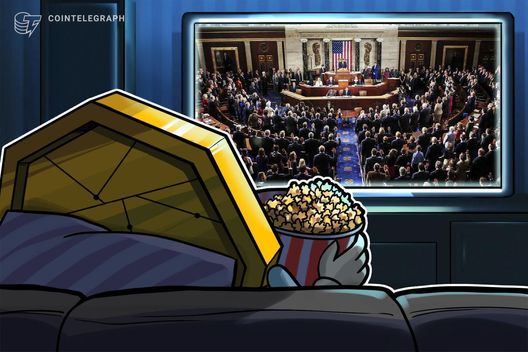

Ripple CEO Brad Garlinghouse is set to testify before the U.S. Senate Banking Committee on Wednesday, July 9, 2025, in a hearing titled “From Wall Street to Web3: Building Tomorrow's Digital Asset Markets”. The hearing will address the regulatory environment surrounding cryptocurrencies, with particular emphasis on proposed legislation like the GENIUS Act and the CLARITY Act. This event marks a crucial point in the ongoing discussions about the future of digital asset regulation in the United States.
Garlinghouse's invitation to testify underscores the significance of Ripple's role in the digital asset space and the Senate's commitment to understanding the complexities of the crypto market. He expressed his honor at being invited to speak before the committee, emphasizing the need for constructive crypto market structure legislation. According to Garlinghouse, such legislation is imperative for fostering innovation and financial opportunity while ensuring consumer protection.
The hearing is part of a broader legislative effort led by Senators Tim Scott, Cynthia Lummis, and Ruben Gallego, who oversee the Senate Subcommittee for Digital Assets. Their work includes proposals like the GENIUS Act, which targets stablecoin oversight, and the CLARITY Act, which aims to delineate authority between the U.S. Securities and Exchange Commission (SEC) and the Commodity Futures Trading Commission (CFTC). The GENIUS Act has already passed the Senate, while the CLARITY Act remains under consideration. These measures aim to modernize digital asset regulation, which has been marked by fragmented policy.
Garlinghouse will be accompanied by other notable figures from the crypto industry, including Summer Mersinger, CEO of the Blockchain Association; Jonathan Levin, CEO of Chainalysis; and Dan Robinson, General Partner at Paradigm. The presence of these experts highlights the collaborative effort between lawmakers and industry leaders to shape the future of crypto regulation in the U.S.
The hearing also comes amid Ripple's recent legal developments. Ripple recently announced the withdrawal of its cross-appeal in the long-standing lawsuit with the SEC, signaling the end of a nearly five-year legal battle over the classification of XRP. The SEC is expected to follow suit by dropping its own appeal. This development follows U.S. District Judge Analisa Torres' denial of a joint motion to reduce Ripple's $125 million penalty and dissolve a permanent injunction. A previous ruling in July 2023 determined that XRP is not classified as a security when sold to the general public, though it may be treated as such in certain institutional scenarios.
Several key issues are expected to be addressed during the hearing, including the classification of digital assets, regulatory jurisdiction, and the creation of new registration regimes for brokers, exchanges, and custodians. The Senate Banking Committee is also expected to consider several bills, including the CLARITY Act, the Anti-CBDC Surveillance State Act, and the GENIUS Act.
The GENIUS Act, which stands for Guiding and Establishing National Innovation for US Stablecoins, was passed by the Senate on June 17, 2025. This legislation could benefit Ripple, particularly its RLUSD stablecoin, by creating a regulatory framework that mandates issuers to maintain equivalent reserves and comply with specific operational standards. The bill is now awaiting consideration in the House of Representatives.
The discussions during the hearing are expected to emphasize the need for preemptive regulatory clarity for crypto companies. Witnesses will likely argue that regulatory opacity hampers business ventures and that clear regulations can enhance security without stifling innovation. The hearing will be webcast live, providing broad access to the discussion.
Overall, the Senate hearing represents a significant step in the ongoing effort to establish a clear and effective regulatory framework for digital assets in the United States. With input from industry leaders like Ripple CEO Brad Garlinghouse, lawmakers aim to strike a balance between fostering innovation, protecting consumers, and maintaining market stability.